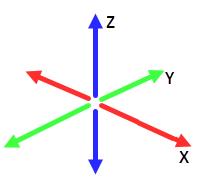Specify the transformation for a part alignment
This feature is part of an extension. Extensions are a flexible way to access additional capabilities in Fusion. Learn more.
Specify the type of transformation that Fusion uses to calculate the part alignment. This determines the number of axes available to translate and rotate the part so that it can be aligned. The type of transformation must be supported by the CNC machine and the post processor.
On the Manufacture workspace toolbar, click Inspection > Probing > Part Alignment
 .
.The Part Alignment dialog opens, a node is added to the active setup, and a Part Alignment contextual environment replaces all the existing tabs in the Manufacture workspace.
 Note: Alternatively, if the Part Alignment contextual environment is already open, click Edit Alignment
Note: Alternatively, if the Part Alignment contextual environment is already open, click Edit Alignment .
.Select a Method to determine the number of axes available to calculate the part alignment.
3 Axis: Enables translation along one, two, or three axes.

4 Axis: Enables translation along all linear axes and rotation about one rotary axis.

5 Axis: Enables translation along, and rotation about, all axes.
 Note: The axes are based on the work coordinate system (WCS) defined in the setup.
Note: The axes are based on the work coordinate system (WCS) defined in the setup.
(Optional) If you selected 3 Axis and want to restrict translation along the X, Y, or Z axes, deselect the Allow Translation Along checkboxes.
Tip: This can be useful, for example, if you are using a vacuum table to secure a part on the CNC machine and you want the part alignment to adjust only in X and Y.If you selected 4 Axis, select an Axis of Rotation.
Click OK.
Now generate an Inspect Surface operation, whose results will be used to calculate the part alignment.